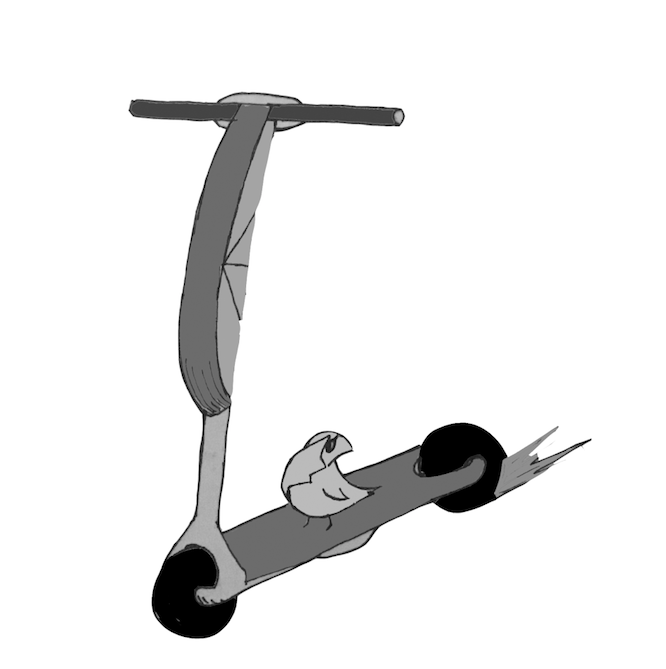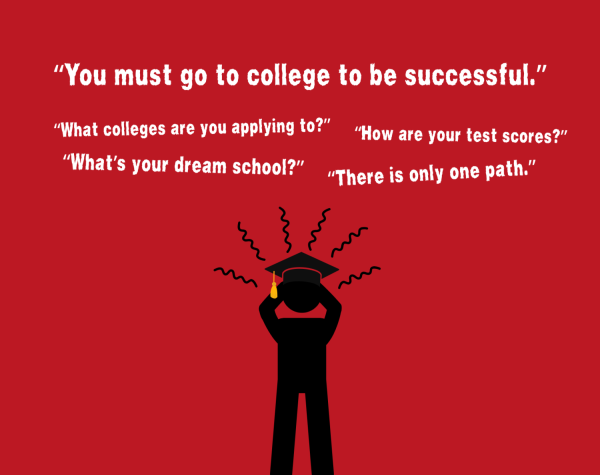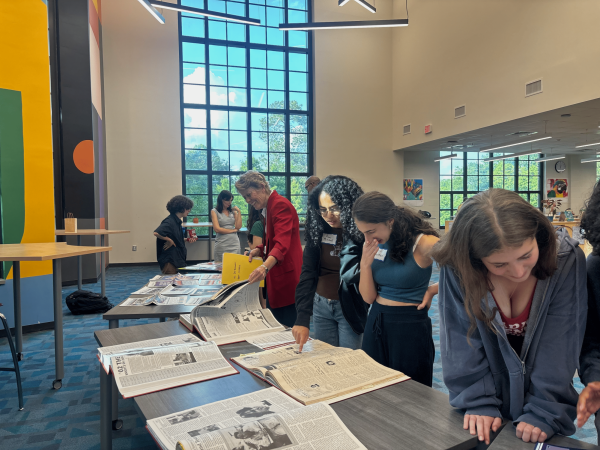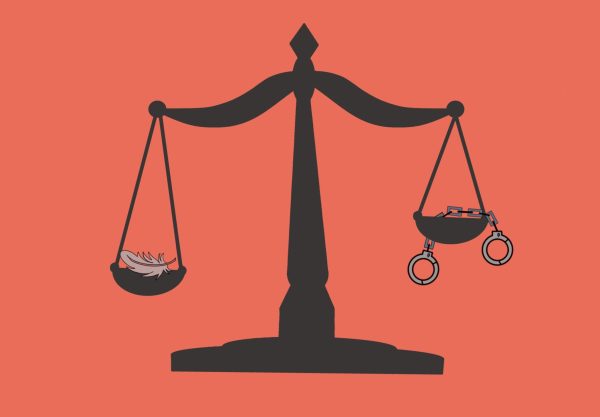Bird, Lime scooters disrupt flow of pedestrian traffic
Bird and Lime scooters are can be found practically anywhere- leaning against bike racks, on sidewalks, and grouped together near Piedmont Park.
A stern-looking man in a suit zooms up 10th Street. The messenger bag over his shoulder is at odds with his plain tie. Students scatter as he makes a beeline for the corner, nearly running over a freshman in the process.
Dockless motorized scooters have become an increasingly common sight around Atlanta, from the BeltLine to the Downtown Connector to Grady itself. You can pick one up pretty much anywhere. You may have seen a flock of Birds (one of the first companies to assail the city) perched in Piedmont Park, parked between the Grady bike racks, or abandoned in the middle of the Stone Mountain Path.
Around Grady, they’re rampant. Birds and Limes can be found leaning across bike racks, strewn on grassy patches, and running up and down streets on all sides of the school. They block the sidewalks and bike paths we walk and ride to school on, and generally disturb the peace.
Advocates for motorized scooters argue they serve as an environmentally-friendly option and help reduce traffic. However, the scooters prevent others from doing just that by blocking paths and speeding past pedestrians. These scooters are a safety concern, and the companies that drop them in cities around America do not seem to care. Companies have done little more than add tabs on safety to their websites.
Birds and Limes are dockless; independent agents hired by their companies leave them in certain areas for pickup, but customers don’t have to return them to a central location. The recent trend of leaving them in the middle of sidewalks and paths is only partly the fault of riders; by design, Birds have no nest, and Limes have no trees. Rather than taking responsibility for their wayward charges, the companies hire independent agents to pick up abandoned scooters. Lime’s website urges visitors to “become a juicer,” but they run pickups through the app, and in any given city there isn’t a central entity managing pickups or charging. This is only one aspect of these companies’ laissez-faire relationship with public spaces; the company has dropped scooters in several cities (Atlanta included) without any warning, and without asking the local government for permission to do so.
Last month, Bird lobbied for bill AB-2989 in the California State Assembly with plans to limit safety regulations and allow motorized scooters on highways and sidewalks with higher speed limits. The legislature only amended rules for riding on highways, but the fact that Bird tried to water down safety laws in the first place is worrying.
Scooter-related misdeeds aren’t limited to the corporations themselves, though. Riders also make Birds and Limes an easy target for removal by using them on bike paths and sidewalks, where motorized vehicles are banned. As I ride my bike to school, I routinely watch helmetless riders race each other (usually in Piedmont Park, where scooters are banned). Supporters of the companies say that they’re getting people outside, but they do it at the cost of public safety and everybody else’s commute. Ultimately, Birds and Limes aren’t worth the trouble their riders and distributors cause.
Atlanta may be a heavily car-dependent city, but it isn’t this desperate for alternatives. Bird and Lime routinely ignore their products’ many issues at the cost of everyone around them. The city of Atlanta wants to promote these vehicles as an alternative to cars, but the public forums they’ve held has only resulted in the formation of a committee that has yet to take action.
In the meantime, motorized scooters continue to go unregulated. As a regular bike commuter, I don’t see how these companies are content with blocking public paths and profiting off of irresponsible riders. It’s high time that the city of Atlanta joined other cities around the country in regulating motorized scooters.






